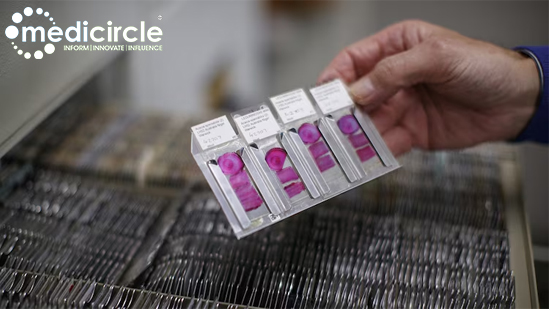Diabetic nephropathy, also known as diabetic kidney disease, is a serious complication of diabetes that affects the kidneys. It occurs when high blood sugar levels associated with diabetes damage the small blood vessels in the kidneys, leading to impaired kidney function over time. This condition is one of the leading causes of kidney failure globally.
What is Diabetic Nephropathy?
Diabetic nephropathy is a progressive condition that develops in individuals with both type 1 and type 2 diabetes. The kidneys play a crucial role in filtering waste products and excess fluids from the blood, producing urine, and maintaining overall fluid and electrolyte balance in the body. When the kidneys are damaged due to diabetes, they may no longer function efficiently, leading to complications such as fluid retention, electrolyte imbalances, and the buildup of toxic waste products in the blood.
Symptoms of Diabetic Nephropathy: Diabetic nephropathy often progresses silently in its early stages, with symptoms becoming noticeable as kidney function declines. Common signs and symptoms of diabetic kidney disease include
1. Increased Urination: Individuals may experience increased frequency of urination, especially at night (nocturia), as the kidneys attempt to eliminate excess fluids from the body.
2. Swelling (Edema): Fluid retention due to impaired kidney function can lead to swelling in the legs, ankles, feet, and face.
3. Fatigue and Weakness: As kidney function declines, individuals may feel more tired and weak due to anemia and the buildup of toxins in the blood.
4. High Blood Pressure: Uncontrolled blood pressure is a common complication of diabetic nephropathy and can further worsen kidney damage.
5. Proteinuria: The presence of protein in the urine (proteinuria) is a key indicator of kidney damage. Healthy kidneys filter waste products while retaining essential proteins in the blood. In diabetic nephropathy, damaged kidneys allow proteins to leak into the urine.
6. Poor Appetite and Nausea: Accumulation of waste products in the blood can cause loss of appetite, nausea, and vomiting.
Precautions for Diabetic Nephropathy: Managing diabetes effectively is crucial for preventing or delaying the onset and progression of diabetic nephropathy. Here are important precautions to consider:
1. Control Blood Sugar Levels: Maintaining stable blood sugar levels within the target range recommended by healthcare providers is essential for preventing kidney damage. This can be achieved through a combination of medication, diet, exercise, and regular monitoring.
2. Monitor Blood Pressure: High blood pressure (hypertension) accelerates kidney damage. Individuals with diabetes should monitor their blood pressure regularly and work with healthcare providers to keep it under control.
3. Adopt a Healthy Diet: A balanced diet low in sodium, saturated fats, and processed sugars can help manage diabetes and protect kidney health. Focus on consuming fresh fruits, vegetables, whole grains, lean proteins, and healthy fats.
4. Limit Alcohol and Tobacco Use: Alcohol and tobacco can exacerbate kidney damage and should be avoided or limited.
5. Stay Active: Regular physical activity can help control blood sugar levels, maintain a healthy weight, and improve overall cardiovascular health.
6. Manage Cholesterol Levels: High cholesterol levels can contribute to cardiovascular complications that worsen kidney disease. Maintain healthy cholesterol levels through diet, exercise, and medication if necessary.
7. Attend Regular Check-ups: Routine medical check-ups and kidney function tests are important for monitoring the progression of diabetic nephropathy and adjusting treatment plans accordingly.
Treatments for Diabetic Nephropathy: Treatment options for diabetic nephropathy focus on slowing the progression of kidney damage, managing symptoms, and preventing complications. Common treatments and interventions include:
1. Blood Sugar Control: Optimizing blood sugar levels through lifestyle modifications and diabetes medications is essential for preventing further kidney damage.
2. Dietary Modifications: Working with a registered dietitian to develop a kidney-friendly diet plan can help manage blood sugar levels and reduce strain on the kidneys.
3. Dialysis: In advanced stages of diabetic nephropathy where kidney function is severely impaired, dialysis may be necessary to perform the kidneys' filtering functions artificially.
4. Kidney Transplant: For individuals with end-stage kidney disease, a kidney transplant may be considered as a long-term treatment option.
5. Lifestyle Changes: Adopting a healthy lifestyle, including regular exercise, smoking cessation, and alcohol moderation, can help manage diabetic nephropathy and improve overall health outcomes.
Diabetic nephropathy is a serious complication of diabetes that requires diligent management and preventive measures. By controlling blood sugar levels, maintaining a healthy lifestyle, and working closely with healthcare providers, individuals with diabetes can reduce their risk of developing kidney disease and improve their quality of life. Early detection and timely intervention are key to managing diabetic nephropathy effectively and preventing further complications. If you or a loved one experience symptoms of diabetic kidney disease, seek prompt medical attention for appropriate evaluation and management.

 Early detection and timely intervention are key to managing diabetic nephropathy effectively and preventing further complications.
Early detection and timely intervention are key to managing diabetic nephropathy effectively and preventing further complications.













.jpg)












_elected_as_global_president_of_the_world_congress_of_ophthalmic_anaesthesia.jpg)






